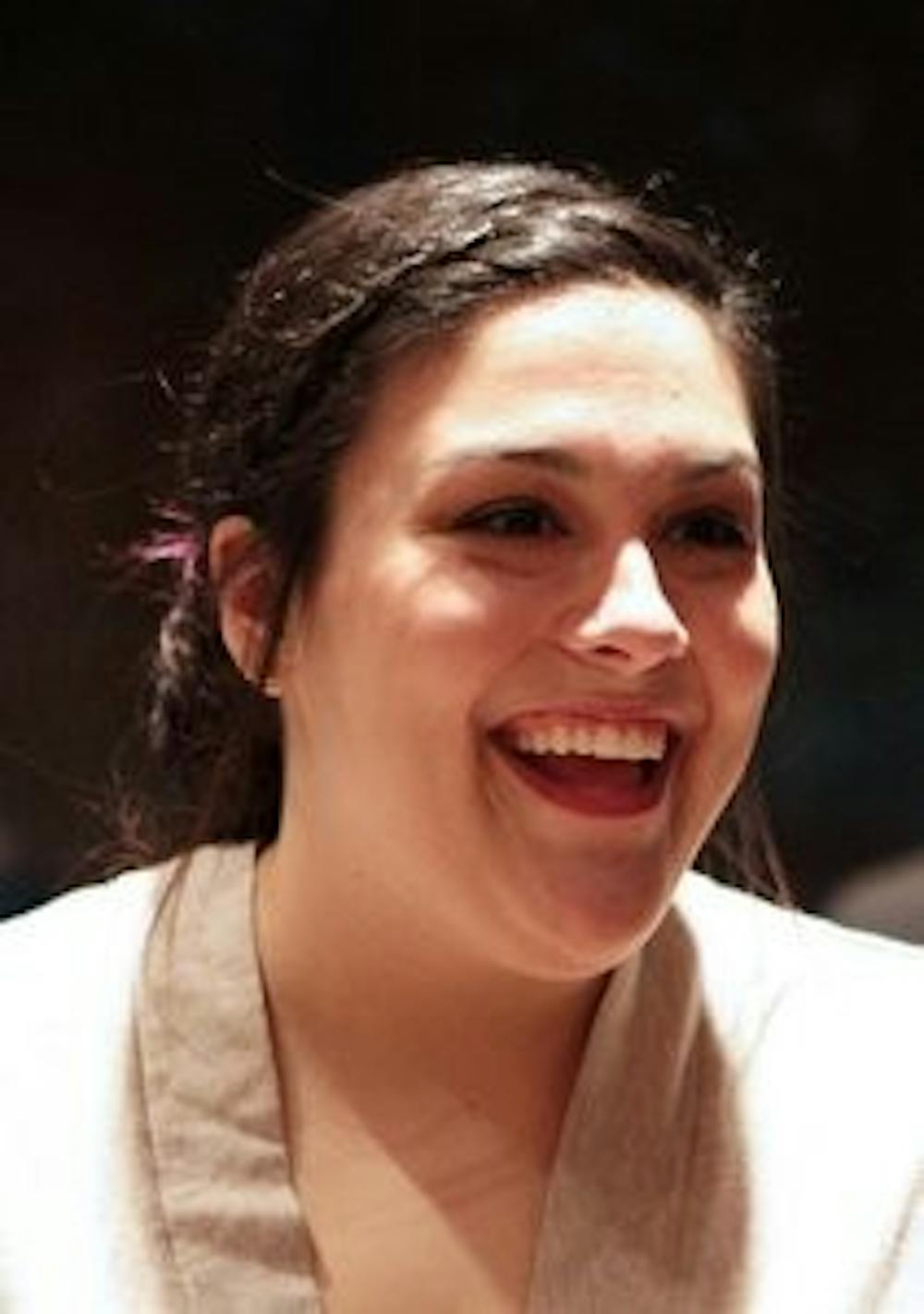The stage is nothing without its players, which is why directors spent three days last week selecting actors to perform this year's fall lineup.
In order to qualify for all three plays, actors were asked to prepare a short joke, a monologue and a song.
Auditioning students crowded one corner of the theatre lobby, posing for glamour shots and practicing their jokes.
A few sat laughing together as they filled in the questionnaire on their application forms, which mostly confirmed which types of roles the actors were willing to perform on stage.
Are you willing to cut or dye your hair?
Are you willing to kiss on stage?
Are you willing to wear prosthetic genitalia on stage?
"Sure, but I don't know if it would fit," someone joked.
Some students sat alone, mentally preparing themselves for their audition, while others gave encouragement as each actor made his or her way backstage.
If the people in the lobby were too loud, it would disturb the actors on stage, so theatre manager Alisa Allison settled for pumping her fists and miming her support instead.
Jacob Heflin, sophomore in musical theatre, said he's already been in three plays, but it's still hard to be calm during auditions.
"The nerves can kind of set in at any time, but when they do hit, you're shaking," Heflin said.
Theatre majors are required to audition for every production, so they must learn to adapt quickly, said Rachel Pair, junior in musical theatre.
"My first audition, I was utterly terrified because it's the second day of class, you don't know the professors and you're going in as someone they've never seen," Pair said. "It's a little intimidating."
If actors do sometimes make mistakes, however, it's important that no one notices, Heflin said.
"I actually messed up my joke really bad, and I made up a totally different ending, but that's just one of the things about it," Heflin said. "You can mess up, but you just have to keep going with it."
Students from other majors often audition as well, and director Joseph Bates said 40 to 60 performers usually compete.
"I don't know why different people are compelled to audition. I don't know why people are compelled to be theatre majors. Everyone has their own story about why they're doing what they do," Bates said.
Actors can be chosen for a role based on their physical similarities to a character, but Bates said exceptions could be made if someone is impressive enough.
"You might have decided to do Charlie Brown, and you decided you want Lucy to be a short girl with brunette hair," Bates said. "It has nothing to do with their talent. On the other hand, this 6-foot blonde may come in and be the smart ass Lucy that you want, so you throw out the idea she has to be a short brunette."
Pair said that's why it was important for her to inject her own personality into the monologue and jokes she chose. This time, Pair chose her joke in honor of shark week.
"What does a shark call something that's totally rad?" Pair said. "Jawsome."
Bates said auditions are the most important part of an actor's career, and he loves it when performers do well.
"Professional actors audition their whole lives, and it's never easy," Bates said. "Most of the time you'll be rejected, but you want them to do well and you want them to do their best. You want to be confused when you leave the room that night about which actor to choose."
Do you like this story? The Plainsman doesn't accept money from tuition or student fees, and we don't charge a subscription fee. But you can donate to support The Plainsman.





